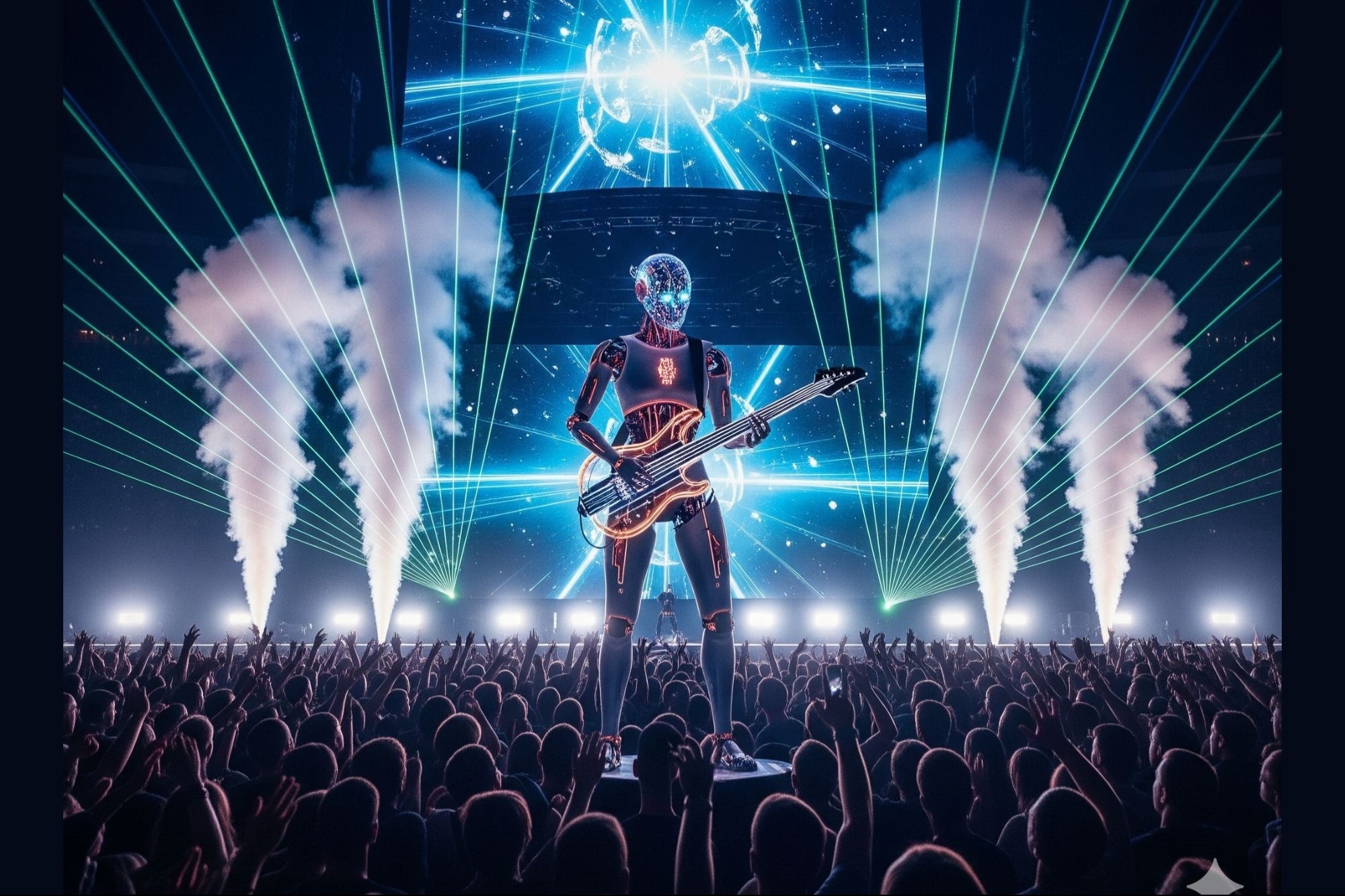AI, Music, Ethics, and a New Generative AI foundation model Beatoven AI founder says hallucinations in foundation models are a feature in music, not a bug.
By Kul Bhushan
Opinions expressed by Entrepreneur contributors are their own.
You're reading Entrepreneur India, an international franchise of Entrepreneur Media.

The music industry is no stranger to copyright battles. But the rise of AI generated music is making things more complicated. While a creator can claim originality for an AI generated track but then the AI models are themselves trained on vast amounts of copyrighted material.
Case in point is Suno vs independent artists. The platform is essentially a generative AI creation platform that helps create realistic songs including vocals and instrumentations. The startup last year raised a massive $125 million in series A funding, likely one of the largest in the domain.
Artists have accused the AI company of using their music without requisite license or permission to train the AI models, and subsequently, infringing upon copyright.
The case is likely to have a larger impact. For instance, a lot of creators rely on such AI platforms to create content and also dodge the punitive copyright strikes imposed by the big labels. YouTube too has very stringent laws on copyrighted content. Violating these guidelines, YouTube may either take down the video, suspend the channel, block content, or stop ad-revenue sharing.
Suno reportedly maintains that even if its AI have been trained to copyrighted content, the platform delivers completely new sounds which does not infringe upon anyone's intellectual property.
"The legal principle of originality is being challenged by artificial intelligence. While humans can claim originality for their creative choices, the AI, however, is making things challenging for everyone. Can someone claim originality on something that is based on synthesis of training data? It's high time we preemptively work on legal implications and regulations that support technological advancements but also protect artists and their intellectual property," said a Mumbai-based advocate and entrepreneur.
New foundation model
Mansoor Rahimat Khan, founder of Beatoven AI, is exploring a new generative AI foundation model for music.
The company claims that it is the first model to be fully licensed and 'fairly trained' from the ground up. It is also built on partnership with rightsholders and has an ongoing revenue sharing arrangement.
Maestro essentially powers Beatoven's suite of generative AI and 'Music Intelligence' tools. This in turn allows anyone to generate instrumental tracks and with sound effects. Vocals will be added to the suite too.
The model relies on datasets licensed in collaboration with Musical AI, a rights management platform that allows AI companies to attribute generative outputs to specific tracks and pay music rightsholders accordingly.
Maestro also works with data partners such as Rightsify, Soundtrack Loops, Symphonic Music, Bobby Cole, Vadi Sound, and Pro Sound Effects. The company plans to add more data partners in the future.
"Its new foundation model will offer inspiring possibilities to Beatoven.ai's existing 2 million registered users who have already generated more than 15 million tracks using the company's previous models. Maestro also allows users to fine-tune the model, meaning Maestro can be trained to tackle new genres, styles, and sounds," the company said in a release.
Even as 'hallucinations in AI' will raise several alarm bells, the Beatoven AI founder thinks otherwise.
"Well, unlike most other modalities, musicians, creators and artists love working with sounds they have never heard before. We are striving to give them creative exploration with generative music. We plan to provide controls that can balance between accurate outputs and never heard before sounds," Khan told Entrepreneur India.
On opportunities and challenges you see in the B2B market for AI, Khan explained, "Our music intelligence tools help catalog owners generate metadata automatically using our analysis models that directly understand the contents of a song by processing the audio files. This is fundamentally different from the traditional tag based metadata systems that were used historically thus enhancing accuracy and reducing manual effort on the labels end. These tools then allow catalog owners to search through their songs with prompts enhancing better discoverability of the music in their catalog."
Company cofounder and CTO Siddharth Bhardwaj further explains that the secret is in the overall process - first is carefully selecting the training data, second is tuning the model parameters, and third and the most important one - providing the fine gained controls to be able to navigate the latent space of the model.
"This enables artists to explore the side paths of the model which are statistically not the average of everything it is trained on," Bhardwaj told Entrepreneur India.
On AI being trained on copyright content, the CTO said that replication of the training content is definitely an issue with these models, especially if you do not tune the size of the model correctly with respect to the training data.
"We don't need to worry too much about it since we have the license to use all the data that goes in the training of the model so even if some parts of those audios are replicated, it is okay," he explains.
Back in India, the music technology industry is also witnessing a gradual change with the arrival of AI. This, of course, opens a new window of opportunity for the market. The overall Indian music industry was poised to be Rs 2,400 crore as of 2023. Here, the music streaming industry is driving this change, which accounts for the overall 87% of industry revenue, according to reports.
"Yes we do have a plan to focus and apply the knowledge and datasets of Indian music. We have plans to incorporate Indian classical , folk and popular genres to give our model a regional flavour given that we are an Indian company. Challenges lie around getting access to large catalogs of content given that these archives are mostly with government bodies and major labels," Khan added.










